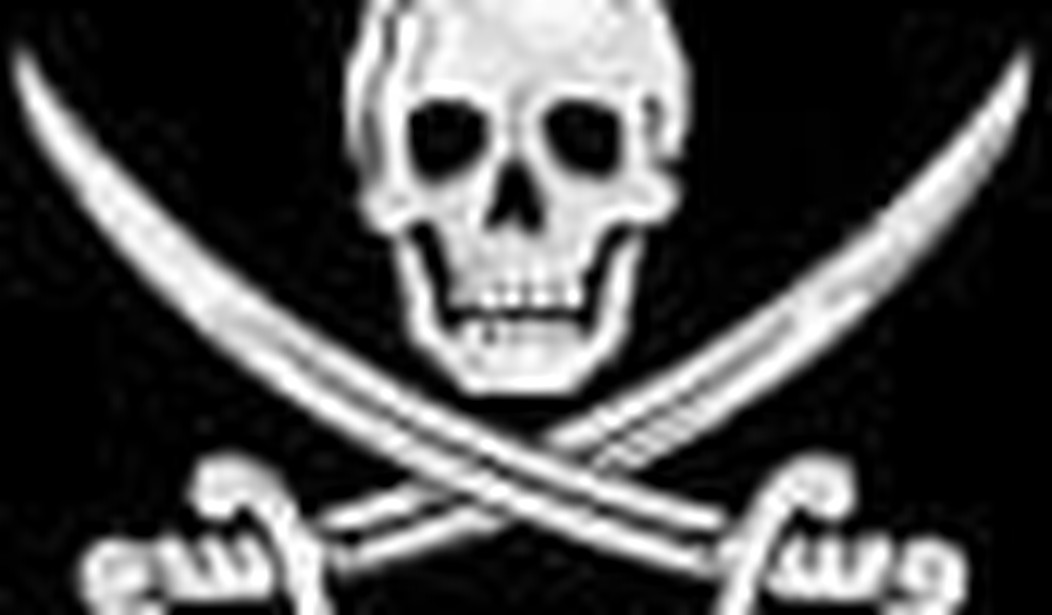The U.S. Navy says it appears pirates tried to attack a large U.S. military oil tanker earlier this week, according to a Reuters report.
“From all appearances it does look like it was a pirate attack and the incident is currently under investigation,” said a U.S. Fifth Fleet spokesman by telephone from Bahrain.
The attack was the latest chapter in an ongoing battle against modern-day pirates.
Under the cover of darkness, in the late-night hours of September 15, thirty French commandos from the elite frogman unit Hubert Commando were dropped from helicopters into dangerous waters somewhere off the coast of Somalia.
The combat divers swam with their night-vision goggles and waterproofed weapons up to the hijacked luxury yacht, the Carre D’as IV, and snuck on board using grappling hooks and ropes. There, the men entered into a gun battle with pirates who were holding two French nationals hostage. One pirate was killed and six were captured.
The following morning, French President Nicolas Sarkozy held a triumphant press conference at the Élysée Palace in Paris. France’s elite force of armed swimmers took 10 minutes to free Jean-Yves and Bernardette Delanne, Sarkozy said. The couple had been held captive since September 2; pirates wanted $1.4 million for their release.
“The world cannot accept [piracy]” Sarkozy said. France’s show of force was meant to be a “warning” to all pirates in the region, he said, adding “France will not accept that crime pays.” Sarkozy then called on world leaders to mobilize the United Nations Security Council to take action against “this plague” of piracy.
But within hours, Somali pirates captured yet another ship in the same lethal waters, this time a Hong Kong-registered chemical tanker with 22 crew. A day later, a Greek commercial vessel called the Centauri was hijacked by Somali pirates. Twenty-five Filipino crew members were taken hostage. The Centauri was carrying 17 tons of salt to a port in Kenya. Maritime officials believe the commercial vessel is now being taken to Somalia’s lawless port of Eyl where as many as 150 other mariners and 15 ships are being held hostage by pirates.
As if those back-to-back attacks didn’t underscore the need for Sarkozy’s call to action, the following day Somali pirates hijacked yet another ship and seized its crew as hostages. Andrew Mwangura, of the East African Seafarers’ Association, told Reuters that there were no details of the identity of this ship, only that it was seized by pirates sometime on September 18.
The coastline along the Horn of Africa is considered to be the most dangerous water in the world. It is also one of the most important shipping channels. Somalia lies at the southern entrance to the Gulf of Aden, which leads up through the Red Sea to the Suez Canal, which connects the Indian Ocean to the Mediterranean Sea. More than 30% of the world’s oil is transported through the Gulf of Aden. While pirates have yet to capture an oil tanker, naval experts say it is just a matter of time.
More than 55 acts of piracy, both successful and attempted, have occurred in or near Somalia’s Gulf of Aden this year alone. The three hijacks this past week are numbers 12, 13, and 14 in the past two months. The International Maritime Bureau (IMB), which runs the Piracy Reporting Center (featuring a live piracy map), says that piracy in the region has reached epidemic proportions. It has also become more organized.
Whereas attacks used to come from bands of pirates operating out of small skiffs, IMB says that pirates are now using “mother vessels” to launch their attacks — large tugs and trawlers that are able to “proceed far out to sea and launch smaller boats to attack and hijack passing ships.” IMB posts photographs of these suspected mother ships on its website.
Until the international community takes action, it is unlikely the piracy will stop.
The BBC’s Africa analyst, Mary Harper, reports that piracy has become a burgeoning business in Eyl, Somalia’s coastal port in a region ruled by Islamists and warlords. Somalia hasn’t had an official government since 1991 and for the past 17 years the country has been considered one of the most ungovernable places in the world.
With ransom rates averaging between $300,000 and $1.5 million per person, piracy has now become the primary industry in Eyl. In Harper’s report, locals describe how men in ties act as the pirates’ accountants and negotiators. Restaurateurs prepare meals for hijacked crews. The fancy new houses cropping up across the port city provide many more locals with jobs. Wired’s Danger Room naval analyst Galrahn says piracy in Somalia has “replaced fishing as the local industry.”
With some $30 million in ransom money already paid to Somalia’s pirates by insurance companies, corporations, governments, and individuals, the pirates are getting rich. Meanwhile, as much as one-third of Somalia’s population remains in dire need of food.









Join the conversation as a VIP Member